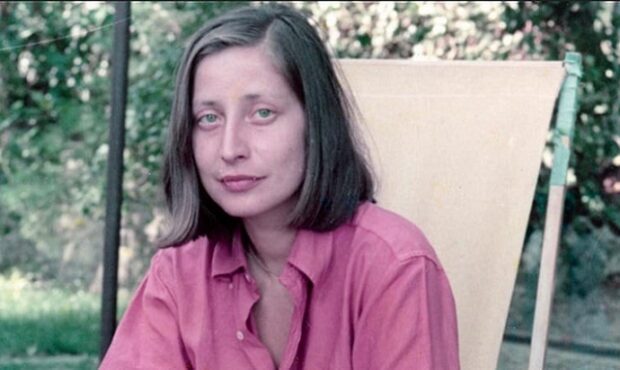These lovely clusters of poems I find
abandoned at the first line or even
at the second, are like the cravats
of Beau Brummel: the ones his
valet calls failed attempts. However,
it’s not just the awkward first gesture
that ordains failure. There is an unwillingness,
perhaps in the things themselves,
to be revealed.
They show their faces but then, hostile, they remain
like this, without saying why. Forcing them
ends badly too, there’s no skillfulness
that can rescue them.
(O laziness, how spiritual you are!)
*
Questi bei fasci di poesie che trovo
abbandonate al primo verso, o anche
al secondo, sono come le sciarpe
di Beau Brummel: gli insuccessi,
a sentire il cameriere. Però
non è soltanto il goffo primo gesto
che causa l’insuccesso, c’è nelle cose stesse
forse una svogliatezza a rivelarsi.
Si affacciano, ma poi, ostili, restano
così, senza spiegarsi. Anche a sforzarle
cadono male, non c’è maestria
che le potrà salvare.
(O pigrizia, come sei spirituale!)
Patrizia Cavalli (by Tom d’Egidio)
It’s been about 11 years since I last saw & spoke with poet Patrizia Cavalli, who died in 2022, aged 75.
She arrived in Rome as a young woman from tiny Todi, & began living in the historic center, which neighborhood was also home to the great novelist Elsa Morante, whose entourage she fell in with. The 21 year-old Cavalli had but vague literary ambitions at the time.
Roman society is pointedly informal, but one afternoon, while leaving the old Ristorante Campana (where Goethe had been a customer), Morante finally asked Cavalli what it was she did. They’d already known one another for two years. Even though she’d yet to seriously apply herself, Cavalli claimed to be a poet, and Morante asked to see her poems.
So Cavalli went home and wrote poems over a period of weeks, left them for Morante, and received a telephone call an hour later in which Morante said, “You really are a poet”. Morante, crucially, became Cavalli’s mentor and she began to be published.
Geography also played a role in my meeting Cavalli. In the 70s we lived just off opposite sides of a piazza called Campo de Fiori, in the middle of which is the monument to Giordano Bruno, burnt there at the stake in 1600.
It means a great deal to walk around the same compact neighborhood as Elsa Morante, Gore Vidal, Cy Twombly, et al., to encounter Fellini in the restaurant a block from one’s apartment. Every day I would pass by the home of the great Austrian poet Ingeborg Bachmann, recently dead under tragic circumstances, and shed a mental tear.
Philosopher Giorgio Agamben says that Cavalli wrote “the most fluent, seamless, & colloquial language of 20th century Italian poetry”. I would add witty, something she likely picked up in her adopted city of Rome, whose inhabitants are justly famous for their incisively sardonic comments.
Her humor is certainly in evidence in the poem I translated, which could even be said to have a punch line. It doesn’t have a title, but is from her 1999 collection Sempre Aperto Teatro (Always Open Theater), awarded the prestigious Viareggio prize for poetry.




No Comments